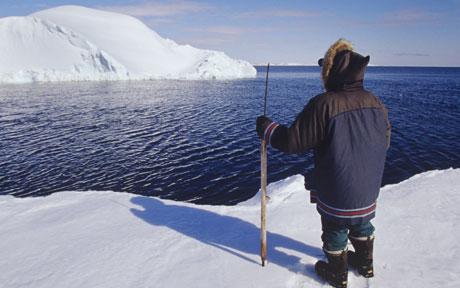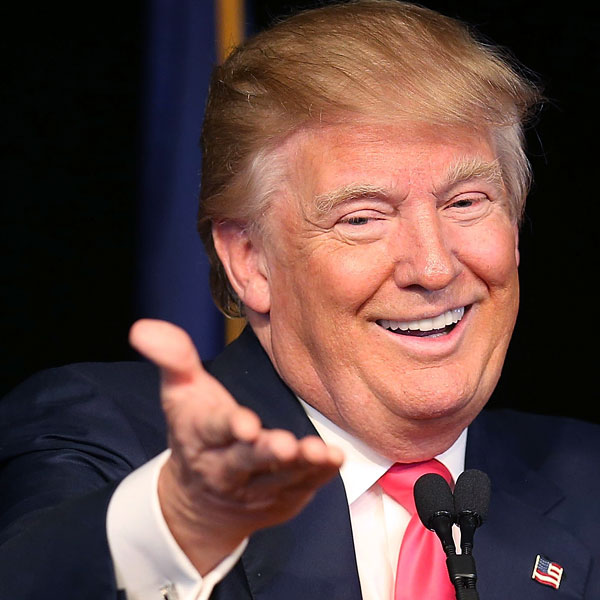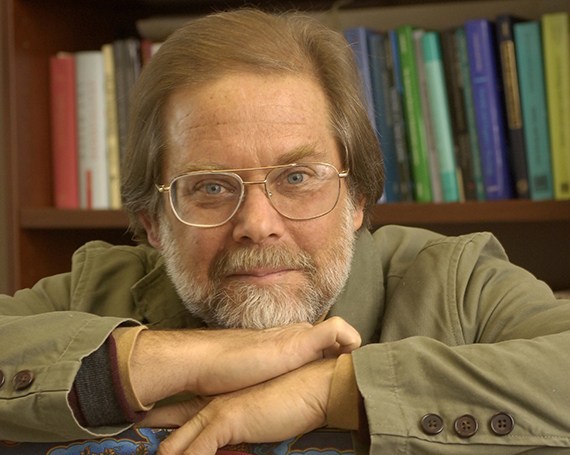Graham Lock
Having recently reviewed David Loy’s latest book, I wasn’t intending to talk about him again so soon. Nor was I intending to add my voice to the howls of anguish following the election of Donald Trump. However, Raymond Lam, Buddhistdoor’s senior writer, recently sent me the transcript of a talk called “The Bodhisattva Path in the Trump Era” that David gave recently in Boulder, Colorado. Although the talk draws on ideas he has already elaborated in his book, it also presents a perspective on the post-election situation that I think is worth thinking seriously about. The transcript has just been made available on David Loy’s website [1], so I’ll just summarize some of the possibly challenging points he make and my reactions to them.
Anyone familiar with David Loy’s talks and writings will not be surprised that his primary concern is with how a Trump presidency might affect how the US deals with environmental and climate change issues. I certainly go along with that. Although I sympathize with the very real fears that have been expressed about how a Trump presidency might affect ethnic minorities, immigrants, women, gays, world trade etc., from outside the US such concerns seem rather parochial given the almost unimaginable catastrophes we are facing resulting from continuing deforestation, desertification, mass extinction of species and, of course, disruption of the climate.
When the Paris Agreement was signed by so many countries last December, like a lot of people I allowed myself a glimmer of hope, but the thought of a US president who had stated that “global warming was created by and for the Chinese in order to make U.S. manufacturing non-competitive” and who wanted to pull out of the Paris Agreement filled me with horror. And as I write this I hear the news that Trump will appoint a climate change skeptic and strong opponent of Obama’s environmental policies to head the US Environmental Protection Agency. With Hillary Clinton we would at least have had a president who accepted climate change as a human-caused reality and probably could have been relied on to implement the promises made by the US in Paris.
This is not quite David Loy’s take. He sees little significant difference between Hillary Clinton’s and Donald Trump’s positions in the context of the enormity of the challenges we face. The analogy he uses is that of a bus hurtling towards a precipice. Two people are fighting for control of the bus. One wants to go faster because he doesn’t believe in the existence of the precipice. The other wants to slow down a bit but doesn’t want to stop. In other words, the election of Hillary Clinton would have meant just more of the same, which has been pitifully little in terms of what is needed to keep global warming to a level at which there would be a possibility of avoiding total global catastrophe.
quite David Loy’s take. He sees little significant difference between Hillary Clinton’s and Donald Trump’s positions in the context of the enormity of the challenges we face. The analogy he uses is that of a bus hurtling towards a precipice. Two people are fighting for control of the bus. One wants to go faster because he doesn’t believe in the existence of the precipice. The other wants to slow down a bit but doesn’t want to stop. In other words, the election of Hillary Clinton would have meant just more of the same, which has been pitifully little in terms of what is needed to keep global warming to a level at which there would be a possibility of avoiding total global catastrophe.
Yet he does see “a very real silver lining, or at least the possibility of a silver lining,” which is for me the most intriguing part of his talk.
He points out that for real fundamental change to take place there has to be a passion for such change from people across the world, but such a passion is hard to arouse in those of us living comfortable lives. He refers specifically to the comfortable “bubble” in which most of his audience in Colorado are living, but of course it applies equally to any of us living in relatively affluent parts of the world, with plenty to eat, somewhere to live, access to medical care and not yet regularly assailed by bush fires, floods, droughts, famines or super typhoons.
I’m sure he is right. When you think about it, it is amazing how so many of us who are well informed about what is happening are still carrying on as usual with our relatively comfortable lives. I don’t exempt myself from this. Despite making resolutions about reducing my carbon footprint, I am flying to Australia at the end of this month. And despite resolutions to be more active on climate change, I still every day see the three chimneys of Lamma Island’s fossil fuel (coal and gas) power station, which supplies power for Hong Kong Island, without making any serious effort to join up with or to support the few people here speaking out publicly against Hong Kong’s extraordinarily wasteful use of energy. The efforts of this rich, “world city” to move in the direction of a carbon neutral lifestyle have been pitiful – at present just an estimated 2% of Hong Kong’s power generation comes from renewables! [2]
 Back to David Loy’s silver lining. He suggests that “perhaps the shock of this election can also help to wake us up.” In other words, the distress and anxiety that people are now feeling and will feel during a Trump presidency might shake them out of their comfortable bubbles and encourage them to work together for change. He already sees encouraging signs of “a sense of community that that has been forming with some groups, people bonding together in a way that is needed if we are going to respond appropriately to the kinds of difficulties that we can now expect” and that resistance is “already starting to catalyze.”
Back to David Loy’s silver lining. He suggests that “perhaps the shock of this election can also help to wake us up.” In other words, the distress and anxiety that people are now feeling and will feel during a Trump presidency might shake them out of their comfortable bubbles and encourage them to work together for change. He already sees encouraging signs of “a sense of community that that has been forming with some groups, people bonding together in a way that is needed if we are going to respond appropriately to the kinds of difficulties that we can now expect” and that resistance is “already starting to catalyze.”
I do not live in the States, so I can’t say whether he is right or not. I fervently hope he is, but I do hear a pessimistic voice in my head reminding me that when people get shaken out of comfortable lives and get desperate, they do not always choose constructive solutions.
In the second part of his talk, Loy returns to the interpretation of the bodhisattva path that he presented in his recent book and how it relates to the issues currently confronting us. He refers to what he calls the “double” or “two-sided” practice of the path. On the one side is work on self-transformation and on becoming grounded in meditative equanimity. On the other is engaging “compassionately and wholeheartedly in social and ecological activities.” Without the first, activists are likely to become frustrated, burned out and angry. Without the second, we are not putting compassion into practice.
Whether or not we are in a tradition that interprets the role of the bodhisattva and the bodhisattva path in the way David Loy’s tradition does, he is clearly saying something important and valid about the complementarity between meditative practice and social action – especially the kind of social action needed to confront the climate emergency. Let’s hope that more and more of us do find ways to become motivated to work together to bring about the necessary changes before we are rudely ejected from our comfortable bubbles! Please do read the full transcript of his talk if you have time.
[1] http://www.davidloy.org/downloads/David%20Loy%20talk%20Nov.%2022%202016.pdf
[2] http://www.enb.gov.hk/sites/default/files/en/node2605/Report_on_the_Public_Consultationon_e.pdf


Please, do not forget that people are also a natural resource. There’s nothing parochial about anyone’s marginalization.
Yes you are right Khatya. Perhaps parochial was not a well chosen word. What I mean is that if the scientists are correct -and there is every reason to believe they are – the suffering that will result if we do not very quickly drastically reduce our impact on the climate will be so devastating and wide-reaching that it has to be first priority among all the issues that need to be dealt with.
A very interesting take on the election result. Thank you for sharing your thoughts with us Graham.